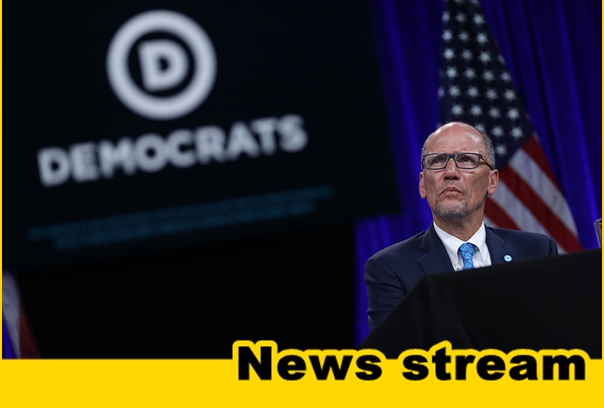
Democrats in Iowa and Nevada were steaming Friday after the Democratic National Committee recommended scuttling proposals intended to make caucuses in both states more accessible and increase turnout in 2020.
While leaders with both the Nevada and Iowa state parties said they were confident the DNC decision would not disrupt the timing of their 2020 presidential caucuses, five officials close to caucus preparations in both states privately expressed dismay over the late decision to scrap the plans for so-called “virtual caucuses,” which had been in the works — with the DNC’s input — since the early spring.
The telephone-based system of voting proposed in Iowa and Nevada was supposed to fulfill a new DNC requirement to improve accessibility at the 2020 caucuses. It came after years of complaints from caucus state voters who say they want to vote but, because of work or physical conflicts, have been unable to attend the long and involved events, which often drag on for hours. The virtual proposal was aimed at bringing in those voters, as Democrats hoped to expand turnout in 2020 and pour the maximum amount of grassroots energy into picking a nominee to take on President Donald Trump.
But two sources close to the DNC discussions said that as the virtual proposals were under consideration, DNC security experts managed to hack into a conference call involving the committee and both Nevada and Iowa parties, raising new questions about security.
Officials in Iowa, however, say that system was not comparable to the technology under consideration for the caucuses. Democratic leaders in both states expressed frustration that they went to great lengths to craft plans and release them publicly early in the year.
“What’s surprising is that the DNC insisted on expanding access to the caucus, and then when the state party comes up with a plan for expanding access, they use leaks and innuendo to tube the process,” said Jeff Link, an Iowa-based Democratic consultant who has long helped run the Iowa caucuses.
Link accused the DNC of leaking a narrative last week out of a closed committee in San Francisco. “This whole notion that their system was hacked and it was a security risk — there was no system in place yet,” he said.
One Nevada Democrat, who asked not to be named, noted that the DNC had advance viewing of the state’s plan before it was made public in March.
“To say this is unbelievable would be an understatement,” the person said.
A DNC spokesperson did not respond to a request for comment.
“Unfortunately, the DNC has advised we not go forward with this process due to threats against our Democratic infrastructure and Republican inaction to prevent future attacks in the upcoming election cycle,” Nevada Democratic Party Chairman William McCurdy II said in a statement.
The DNC is particularly sensitive about cyberattacks after Russian operatives hacked into its systems during the 2016 presidential race. FBI officials have repeatedly warned that the 2020 elections are just as vulnerable to similar attacks, including from foreign nations.
It’s unclear just how the caucuses in both Iowa and Nevada will move forward while still fulfilling the DNC-imposed accessibility requirement.
While applying for a waiver to skip compliance with the requirement is an option, Price said he doesn’t foresee Iowa Democrats going that route at the moment. A Democrat close to the process in Nevada expressed more confidence that the party’s proposal to introduce four days of early voting there would fulfill the accessibility requirement, even with the virtual caucusing scrapped.
Meanwhile, numerous campaigns on Friday called on the DNC to stick to its plan that would increase accessibility.
“The DNC has disallowed plans to increase participation in the first-in-the-nation caucus state,” Julián Castro said Friday on Twitter. “I strongly urge the DNC to embrace our party’s values and allow absentee voting, either through a virtual caucus, mail-in, or early voting process.”
Privately, however, aides with several campaigns said they are breathing a sigh of relief. The virtual setup introduced a new counting and reporting system, injecting an element of the unknown into the already complicated caucus process that could have muddied a clear narrative coming out of Iowa next year, the aides said.
Iowa Democrats vowed on Friday that the ruling by the DNC would not jeopardize Iowa’s status as the first-in-the-nation caucus state.
“Just know this: On Feb. 3, 2020, caucuses will take place in this state. Iowa will be first,” Democratic Party Chairman Troy Price said during a news conference.
“I am confident that we will find something that will expand accessibility in that process,” Price said. “I’m not going to speculate on what those alternatives are.”
Price said he spoke on Friday with DNC Chairman Tom Perez, who gave him personal assurances that the ruling would not imperil Iowa’s place on the 2020 calendar.
“The chairman has assured us that we will be first,” Price said. “We will be a caucus and we will be first.”
Source: politico.com
See more here: news365.stream





